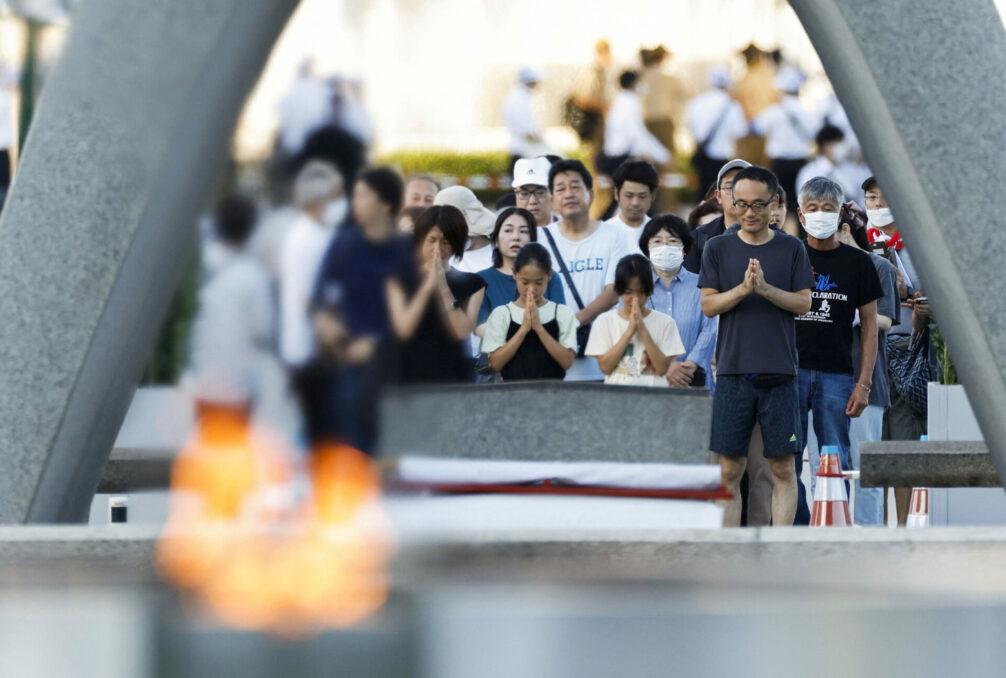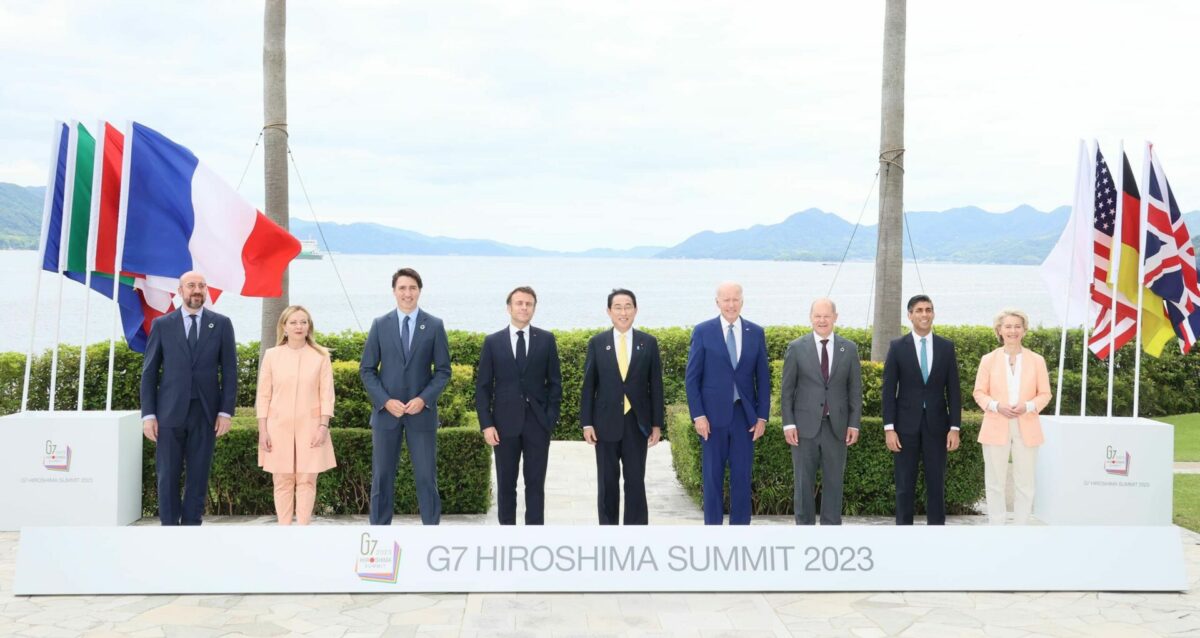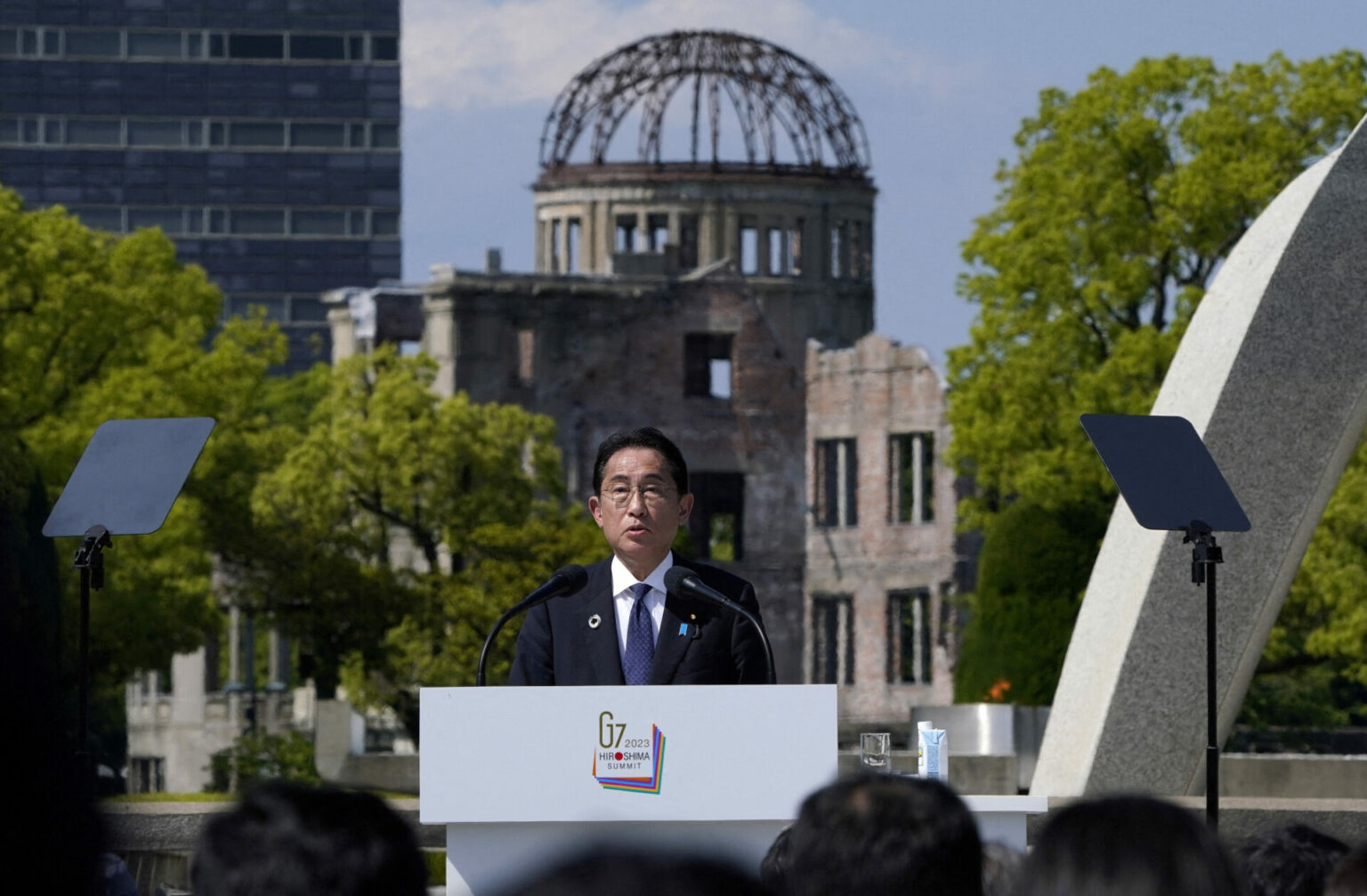6th August marks the 78th anniversary of the atomic bombing of Hiroshima. On this occasion, Japan’s Prime Minister Fumio Kishida has deplored Russia’s threats to use nuclear weapons. A peace bell tolled at 8:15 am, the exact time when the bomb nicknamed ‘Little Boy’ was dropped. Approximately 50,000 people participated in the outdoor memorial ceremony. Among the participants were aging survivors who too observed a moment of silence.
On August 6, 1945, around 140,000 people died in Hiroshima when the United States dropped an atomic bomb on the Japanese city towards the end of the Second World War. Three days later, on August 9, another city, Nagasaki suffered the same fate where 74,000 people died.
What did the PM and other Japanese authorities say?
At a ceremony in Hiroshima on Sunday, Fumio Kishida said that Japan is the only country in the world to have suffered atomic bombings. He said that the country will continue its efforts towards a nuclear-free world. However, the task is becoming “increasingly difficult” as
Russia’s nuclear threat creates divisions in the international community over nuclear disarmament.

Hiroshima’s mayor, in his speech at the ceremony, tagged the G7 leader’s notion of nuclear deterrence a “folly”. He urged the world leaders to abolish nuclear weapons.
The Prime Minister warned the world that the road to a nuclear weapons-free world was “getting steeper” as geopolitical tensions grow and threats loom.
Reaction of the international community
Japan’s condemnation of the nuclear threat has come after Russian officials have talked about using nuclear arms against Ukraine in the war. However, Western authorities have denied any evidence of Russia preparing for any nuclear attack.
The United Nations Secretary-General, Antonio Guterres, expressing his solidary with Japan said that world leaders have visited Hiroshima, seen its monuments, talked to its survivors, and become inspired to uphold the cause of nuclear disarmament. He added, “More should do so because the drums of nuclear war are beating once again.”
In May, Hiroshima, PM Fumio Kishida’s home constituency, hosted a G7 summit. G7 leaders expressed their commitment towards nuclear disarmament in a statement. But, they said that as long as nuclear arms existed, their goal should be to deter aggression and prevent war.

Oppenheimer: offensive or sensitive?
As Christopher Nolan’s biopic ‘Oppenheimer’, chronicling the creation of the atomic bomb by the brilliant physicist J. Robert Oppenheimer, has become a blockbuster recently, some have criticized the movie for ignoring the devastating catastrophe of Hiroshima and Nagasaki. Japan has yet to announce the film’s release in the country.
Fan-made memes about “Barbenheimer” have caused controversy in Japan as pictures of Barbie actors alongside images of nuclear blasts made the rounds on social media.
In 1965, Oppenheimer, who famously quoted the Bhagavad Gita describing nuclear weapons as “the destroyer of worlds”, was asked about the US and Russia’s pact to halt the arms race. He replied, “It’s twenty years too late…”
Deep wounds caused by the bombing
Apart from the immediate destruction of the bombings that killed hundreds of thousands of people, the wounds that remained with the country were, and still are, extremely deep. Thousands of survivors of the horrible attack were scarred physically and mentally. Generations of people suffered the consequences of nuclear radiation exposure, and have spent their lives in deformed, chronically ill bodies.












